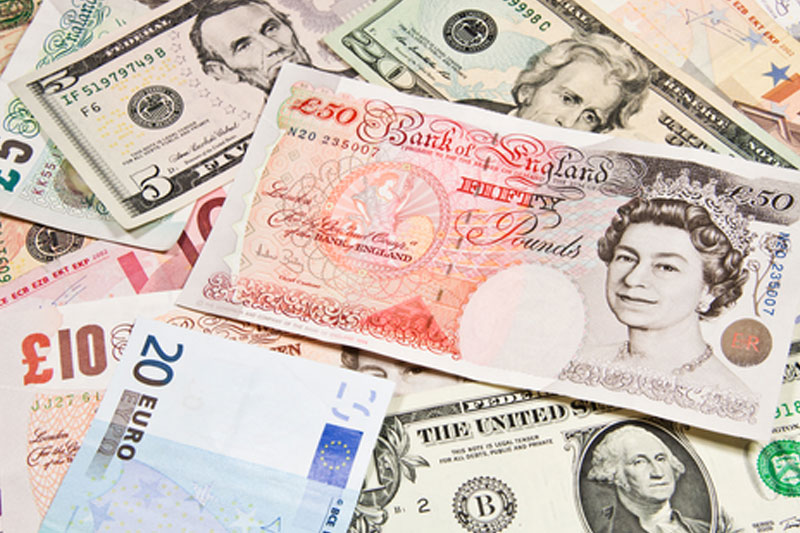Investing.com - The pound was trading at four month lows against the dollar on Thursday, one day after the Bank of England indicated that weak wage growth could push back the timing of a possible interest rate hike.
GBP/USD touched lows of 1.6658, the weakest since April 15 and was last at 1.6686, unchanged for the day.
Cable was likely to find support at around the 1.6600 level and resistance at 1.6750.
Sterling weakened broadly on Wednesday after the BoE halved its forecast for wage growth this year in its quarterly inflation report, slashing it to 1.25% from 2.5% previously.
BoE Governor Mark Carney indicated that developments in pay growth would be a critical factor in determining the timing of any change in interest rates. He also reiterated that when rates do start to rise they will do so a “small, slow” manner.
Earlier in the day, the salary growth component of the U.K. employment report showed that wage growth contracted in the three months to June.
The Office of National Statistics said average earnings, excluding bonuses, rose by only 0.6% in the quarter. Including bonuses, wages contracted by 0.2% during the quarter, the first decline since 2009.
The weak wage growth data offset a decline in the unemployment rate to 6.4% and a drop in the number of people claiming jobless benefits.
Sterling made strong gains against the dollar in the first half of the year amid expectations that the deepening economic recovery would prompt the BoE to hike rates before the end of 2014. The pair hit almost six-year highs of 1.7190 in mid-July, but ended the month lower amid growing expectations that the Federal Reserve is moving close to raising rates.
Elsewhere Thursday, the pound fell to six-week lows against the euro, with EUR/GBP rising 0.16% to 0.8020.
The single currency pushed higher after data showing that economic growth in the euro zone stagnated in the second quarter was seen as boosting the likelihood for more action by the European Central Bank to shore up growth.
A separate report showed that the annual rate of inflation in the euro area was unchanged at 0.4%, but consumer prices fell 0.7% from a month earlier, worse than expectations for a 0.6% decline.
